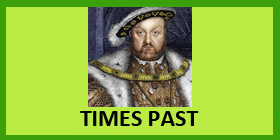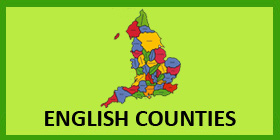




Back to the End Of The Georgians calendar



You may remember way back in 1688 Parliament had invited William and Mary to come over to England and rule as they had not wanted the Catholic James III. Ever since then governments and kings had been worried about catholic rebellions. The old pretender, in 1715, and the young pretender, in 1745, had only added to those worries. However since then things had been fairly quiet.
The 1801 union in which Ireland had formally come under British rule did, however, present a slightly bigger problem. Most of the people living in Ireland were Catholics. Some laws had been relaxed and Catholics could now purchase property and practice their religion without fear or penalty. However they could not hold any office within Parliament.
An Irish lawyer, Daniel O’Connell, began to gain support for Catholics to be treated, in all matters, as an equal. The British government were worried as they feared riots and worse in Ireland and so, in 1829, the Catholic Emancipation Act was passed. Emancipation means to be set free from any restrictions and usually applies to political or social limitations.
The Act basically said that Catholics could sit as MPs at Westminster and that Catholics were eligible for all public offices except those of Lord Chancellor, Monarch, Regent, Lord Lieutenant of Ireland and any judicial appointment in any ecclesiastical court. This lifted most civil restrictions. However the Act also said that in Irish county elections the £2 freehold qualification was to be raised to £10 per householder, which immediately cut down the number of peasants able to vote. O'Connell accepted the Act but many peasants saw him as a traitor as they had now lost their vote.
Do you know why we call our policemen, “bobbies”? The answer is that the very first police force in England, the Metropolitan Police Force in London, was formed in this year and the man who was in charge of forming it was Sir Robert (Bobby) Peel. In fact, initially, they were called “peelers” but once the potato became popular they changed their name. Possibly.
England was one of the last places in the United Kingdom to have a police force. The City of Glasgow Police were formed in 1800 and the Royal Irish Constabulary in 1822.
 The Metropolitan Police Act was passed and provided permanent, paid constables to protect the capital as part of the Metropolitan Police Force. The first of Peel’s police, dressed in blue tail-coats and top hats, started to patrol the streets of London on 29th September 1829. The uniform was chosen so that the constables looked less like an army, usually dressed in red, and more like ordinary people. They carried a wooden truncheon, a pair of handcuffs and a rattle so that they could raise the alarm. In later years the rattle was replaced by a whistle.
The Metropolitan Police Act was passed and provided permanent, paid constables to protect the capital as part of the Metropolitan Police Force. The first of Peel’s police, dressed in blue tail-coats and top hats, started to patrol the streets of London on 29th September 1829. The uniform was chosen so that the constables looked less like an army, usually dressed in red, and more like ordinary people. They carried a wooden truncheon, a pair of handcuffs and a rattle so that they could raise the alarm. In later years the rattle was replaced by a whistle.
To join, you had to be aged between 20 and 27 and be at least 5ft 7in tall. You had to have no history of any wrong-doing, be fit and able to read and write. The constables worked seven days a week with just five days holiday each year. They could not vote in elections, needed official permission to get married and also had to ask their bosses if they wanted to share a meal with a civilian. All officers had to wear their uniforms both on and off duty.
A County Police Act in 1839 allowed counties and towns to have their own force, based on the one in London.
Forward to 1830AD

